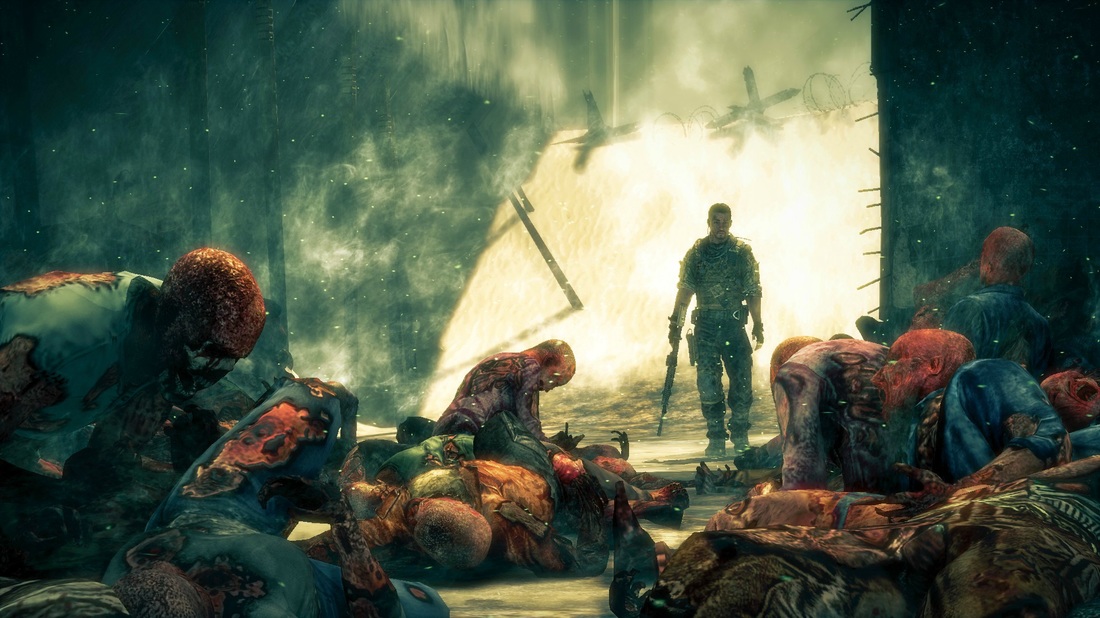
What started as curiosity to learn about Dubai and its fall became spitting at the screen about wasting my time. I lost interest in the optional side quest of collecting Intel for further exposition about the world around me.

Out of the game, I noticed myself getting more frustrated with each death. Their chummy squabbling breaks, splintering into accusations and brutality. Walker and his two squad mates, Lugo and Adams, devolve into something vitriolic as their situation darkens. My patience deteriorated not out of boredom or disinterest, but out of development. They were hurdles and they needed to be knocked down. Each approaching soldier boiled down to nothing more than a puff of red smoke when I took aim. Instead, I became more agitated as I played. Really, though, the waves of soldiers I was instructed to kill didn’t cheapen the gravitas of the message. The story and gameplay start with what seems like military shooter bliss, a thoughtless mowing of thousands of soldiers – American soldiers – in order to make the game funner. In their decent, the Marines are changed, battered, confused, burned and eventually torn asunder. At the command of the lost soldiers is a man named Konrad, a war hero and idol of the game’s protagonist, Walker. The game centers around a group of Marines sent to Dubai to find a missing battalion of soldiers called the 33rd. It’s a reminder that the game is just a game at the end of the day, and it shouldn’t be forgotten. The violence in Spec Ops seems out of the ordinary.

There’s a VJ character that espouses criticism and irony throughout, using lines like “Where’s all this violence coming from? Is it the video games? I bet it’s the video games,” and “Rated E for Everyone’s Thirsty!” In a less harrowing experience, this would come across cheeky or loose, but here it’s a focused comfort. It’s aware of its violence and its humanity. Spec Ops: The Line is very aware it is a video game. The game dared me so many times, egging me to just go for it, but I waved my hands at it, acting cool when really I had no clue what would happen next. I looked down the barrel of my gun with caution rather than my usual brazen eagerness. I rested at several key moments in the game, wondering if I should go back and play them over. That may seem trite, and true of most third person shooters, but there’s something different with the feeling – the rule – of it here. There is only one way to investigate areas and get a closer look at objects and people in the periphery of Spec Ops: The Line: down the barrel of a gun. GamerNode Public Service Announcement: There be SPOILERS ahead!!


 0 kommentar(er)
0 kommentar(er)
